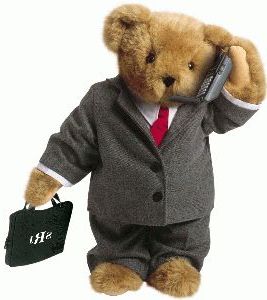Here's a question that everyone has an opinion on, and usually a strong one. And the simple answer is that there is actually a simple answer, but it conflicts with what most sellers do.
Almost universally, with very few exceptions, the best price to start your listings at is 99cents, or the equivalent in your local currency. Some of you may be nodding in agreement, while others are vehemently shaking their heads, and still others of you are intrigued.
Let me explain the psychological and statistical reasons behind this strategy.
There is a predictable and inevitable process that starts to take place when you list an item for 99cents. I should clarify this only works if it's obvious that the item is worth more than 99cents. Should be obvious, but it needs to be said, and I don't want people wasting their time writing in to tell me that. Back to the plotâ¦
As soon as you list an item at 99cents, it attracts bids pretty much immediately because it's seen as a bargain, and attracting bids is the key to success because bids attract bids like bees to a honey pot.
If an item doesn't have any bids, it's a much bigger step for a buyer to place a bid; because no on wants to be the first. Think about this from your own experience as a buyer â how often are you the first person to place a bid on an item, and if you were the first, what was the starting price?
I told you there was psychology behind this, didn't I? Here's what happens. When someone bids on an item, they mentally take ownership of it. Even though the auction is still going, they believe that the item is theirs because, when they place their bid, they are obviously the high bidder at the time. So when you start at such a low price, you attract lots of people who all believe they might get a bargain and, in placing a bid, they commit to buying it, they make an unconscious claim of ownership of that item. The net result is that you have a bunch of bidders who all believe the item is theirs.
This is a fantastic position to be in as a seller because, in almost every case the final bid ends up being far more than if you'd have listed the item at a starting price closer to its true value. For example, let's say you've got an item that you want to sell for three hundred dollars.
If you list the item to start at two hundred dollars then you'll probably get two hundred and something, possibly three hundred for it.
If you start the item at ninety nine cents, the price will rise rapidly within the first day or so, and again near the end, and invariably it'll result with a far higher ending amount.
The reason for this is the initial interest the auction attracts â an item with a very low starting price will attract far more interest than one closer to the true value of the item.
Another factor that comes into play is pride. When someone else comes along and places a higher bid on THEIR item, it feels like an insult (think about this in your own experience as a buyer). So bidding at that point becomes less about the actual money involved and more about. So they end up bidding far more for the item than they really should have done and often more than they intended to. A similar situation often occurs with inexperienced buyers in offline auctions.
It's all about the numbers â the more bidders you have, the more people who have taken âownership' of the item, the more they will fight to get it. It's buyer psychology and it's been proven over and over again to be true.
If this strategy still sounds scary and reckless, let me reassure you that it's not. Let's just say that something freaky happens, the worst case scenario happens, where you list something for 99 cents that was worth a lot more and it didn't receive many bids. Well, some sellers use eBay's facility to withdraw the item from sale up to twelve hours before the auction finishes. That's your choice, but my personal feeling is that an occasional incident where an item didn't reach it's true value happens so rarely that you should send the item and be happy about the 99% of times when you raked in the cash!
The Completed Listings section on eBay will provide you with all the proof you need about the benefits of this technique. You'll see the dramatic differences of the end result of auctions that had low and high starting prices. 99 cent auctions are one of the biggest kept secrets of eBay success, because few people are bold enough to try it. So take a deep breath, suck it up, and list something for 99cents with no reserve. You'll be so glad you did.

